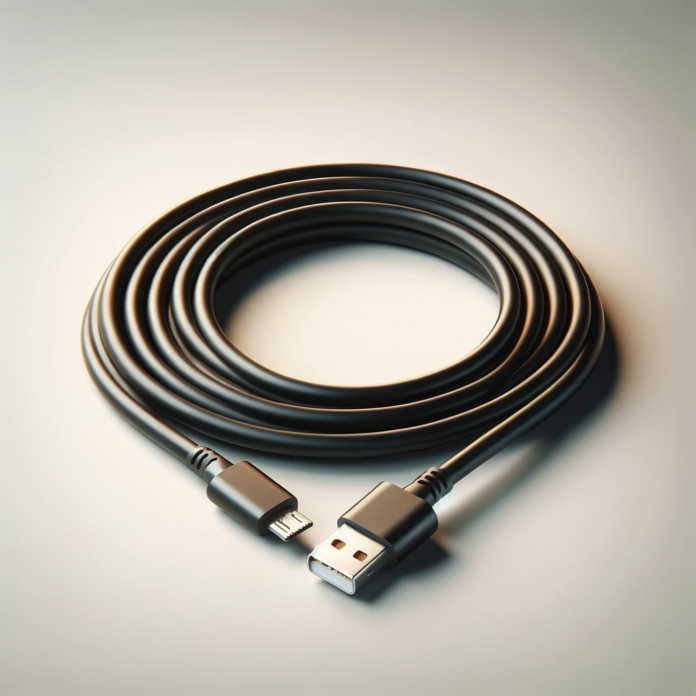A micro USB cable is a type of connector cable that uses a standard Micro-B connector on one end and a USB Type-A connector on the other. The Micro-B connector is a smaller and flatter version of the standard USB Type-B connector, making it ideal for connecting smaller devices such as smartphones, tablets, and portable gaming consoles.
The Anatomy of a Micro USB Cable
A micro USB cable is composed of four main components:
- Connectors: The micro USB and USB Type-A connectors are the physical interfaces that allow the cable to connect to devices.
- Conductors: These are the insulated copper wires that carry electrical signals and data between the connected devices.
- Shield: The shield is a protective layer that surrounds the conductors, preventing interference from electromagnetic waves and ensuring signal integrity.
- Cable Jacket: The cable jacket is the outer layer that protects the internal components from physical damage and environmental factors.
Types of Micro USB Cables
Micro USB cables come in various lengths and types to suit different needs and applications. Common types include:
- Standard Micro USB Cables: These are the most common type, offering basic charging and data transfer capabilities.
- High-Speed Micro USB Cables: These cables support faster data transfer rates, making them ideal for transferring large files or syncing data with computers.
- Durable Micro USB Cables: These cables are designed to withstand heavy use and harsh environments, making them suitable for outdoor activities or industrial settings.
Advantages of Micro USB Cables
Micro USB cables offer several advantages over other types of cables, including:
- Widespread Compatibility: Micro USB is a universal standard, compatible with a vast range of devices, making it a versatile choice.
- Affordability: Micro USB cables are generally inexpensive, making them accessible to a wide range of users.
- Compact Size: The small size of the Micro-B connector makes it suitable for connecting smaller devices.
- Ease of Use: Micro USB cables are easy to connect and disconnect, requiring minimal effort.
Disadvantages of Micro USB Cables
Despite their advantages, micro USB cables have some drawbacks, including:
- Limited Data Transfer Speed: Compared to newer technologies like USB Type-C, micro USB cables have slower data transfer rates.
- Durability Concerns: The smaller connector can be prone to wear and tear, especially in heavy use situations.
- Reversible Orientation: Unlike newer connectors like USB Type-C, micro USB cables require proper orientation for insertion.
Conclusion
Micro USB cables have revolutionized the way we connect our electronic devices, providing a simple and versatile solution for charging, data transfer, and synchronization. While newer technologies are emerging, micro USB cables remain a ubiquitous and valuable tool in our digital world. Understanding the features, advantages, and limitations of micro USB cables is essential for making informed decisions about device connectivity and maximizing the performance of our gadgets.tunesharemore_vertadd_photo_alternate



